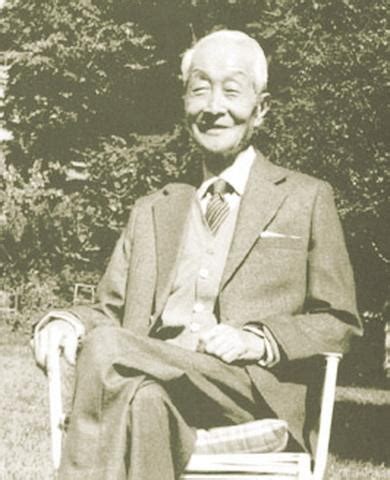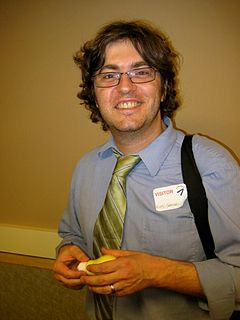A Quote by Isaiah Berlin
The desire not to be impinged upon, to be left to oneself, has been the markof high civilisation both on the part of individuals and communities.
Quote Topics
Related Quotes
Anxiety and desire are two, often conflicting, orientations to the unknown. Both are tilted toward the future. Desire implies a willingness, or a need, to engage this unknown, while anxiety suggests a fear of it. Desire takes one out of oneself, into the possibility or relationship, but it also takes one deeper into oneself. Anxiety turns one back on oneself, but only onto the self that is already known.
The direction of society has been taken over by a type of man who is not interested in the principles of civilisation. Not of this or that civilisation but from what we can judge today of any civilisation. The type of man dominant today is a primitive one, a Naturmensch rising up in the midst of a civilised world.
Consequently, citizen legislators, rotating back to their communities after a short period of public service—considered an indispensable and routine characteristic and design of representative government at the time of the founding, and for a century thereafter—have been replaced with a professional ruling class led by governing masterminds. For the most part, they are isolated from the communities from which they hail and are consumed with the daily jockeying for position and power within their ranks. Moreover, they both pander to and lord over their constituents.
The hardest part of being a Christian is surrendering and that is where the real struggle happens. Once we have overcome our own desire to be elevated, our own desire to be recognized, our own desire to be independent and all those things that we value very much because we are Americans and we are part of this American culture. Once we have overcome that struggle then God can use us as a part of His body to accomplish what the body of Christ was left here to accomplish.
The word desire suggests that there is something we do not have. If we have everything already, then there can be no desire, for there is nothing left to want. I think that what the Buddha may have been trying to tell us is that we have it all, each of us, all the time; therefore, desire is simply unnecessary.
Our use of the phrase 'The Dark Ages' to cover the period from 600 to 1000 marks our undue concentration on Western Europe. [...] From India to Spain, the brilliant civilisation of Islam flourished. What was lost to Christendom at this time was not lost to civilisation, but quite the contrary. [...] To us it seems that West-European civilisation is civilisation, but this is a narrow view.
Designing Online Communities is a must-have for anyone designing or researching online communities, particularly for learning. Owens' work is both comprehensive and eminently readable, a sweeping look at the technologies, design patterns, and cultural forms they produce that is both theoretically ambitious and grounded in examples and tools that will help you develop, research, and manage online communities.








































